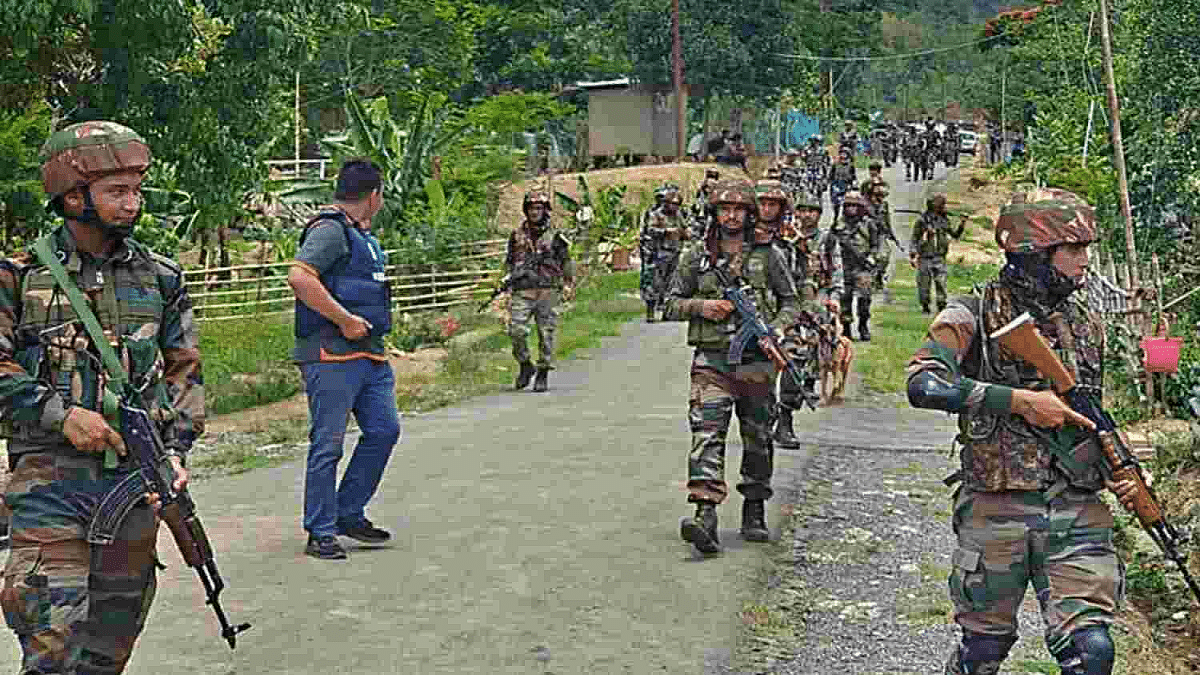2 CRPF personnel killed in Manipur’s Naransena in an attack by militants
Two Central Reserve Police Force (CRPF) personnel lost their lives in an attack by Kuki militants starting from Friday midnight at the Naransena area in Manipur, police said.

There is little hope and scope visible in Manipur for this three-month-long fight reaching its end between the Kuki tribal group and the ethnic majority Meiteis over the division of economic gains and quotas granted to the tribes. Why? The following are the reasons.
a. The Manipur Governor Anusuiya Uikey-led Ministry of Home Affairs (MHA) established a peace committee, but it never really took off because prominent civil society organisations from both the Kuki and Meitei populations declined to participate for various reasons.
b. Establishing confidence through these conversations is anticipated to be a protracted process. Backdoor negotiations with Kuki rebel factions under Suspension of Operations and Meitei civil society are currently underway.
Advertisement
c. The Meitei society and the government of Manipur adamantly maintain that they would uphold Manipur’s sovereignty in its entirety.
d. With 40 MLAs in the 60-member house, the Kukis claim the Meiteis have political sway and demand a “separate administration” in response.
e. Both Kukis and Meiteis lack faith in the security apparatus; Kukis think negatively of the Manipur police, while Meiteis are suspicious of the Assam Rifles. State police must uphold law and order in Manipur because central forces cannot stay there indefinitely, and Assam Rifles must guard the country’s borders with Myanmar.
f. Himanta Biswa Sarma, the chief minister of Assam, has been unable to serve as the BJP’s most effective problem-solver in Manipur. Following Union Home Minister Amit Shah’s visit, Mr. Sarma was given the task and met with Meiteis and Kuki factions. However, the Meiteis have mistrusted him as a result of the release of a 2017 letter suggesting covert agreements with Kuki cease-fire rebel groups.
g. Despite the fact that a substantial portion of Meiteis support Biren Singh as the chief minister of Manipur, Kuki parties refuse to engage in negotiations until he is ousted.
h. The largest tribal community in Manipur, the Nagas, wish to avoid the war. Biren Singh is backed by their political party, the Naga People’s Front state chapter. They are presently concentrated on their own peace negotiations with the central government, notwithstanding the possibility that they could mediate peace.
i. Given that the Mizo tribe has strong ties to the Kuki, Zo, and Chin tribes, the involvement of Mizoram and its Chief Minister has also angered the Manipur government and Meiteis. Manipur and Myanmar refugees are housed in Mizoram, much to Biren Singh and New Delhi’s chagrin.
j. Technical difficulties have arisen in carrying out all-out army operations as in the past due to the removal of the Armed Forces Special Powers Act (AFSPA) in significant portions of Manipur.
Advertisement